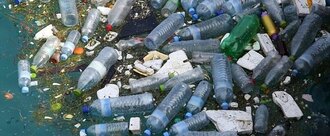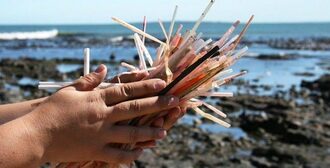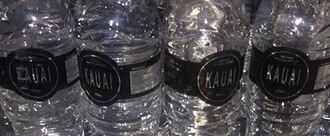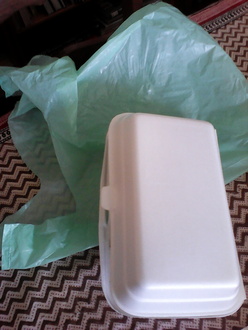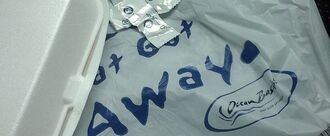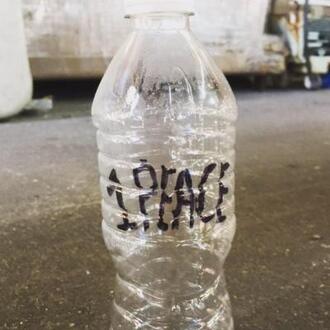
#BreakFreeFromPlastic

21,799
of 25,000
signatures
signatures
across
18 local campaigns
Find a campaign
Campaigns (18)
-
DurbanDURBAN, SA: CIRCUS CIRCUS BEACH CAFE STOP USING PLASTICGiven Circus Circus Beach Cafe's proximity to the Durban Beach Front, we expect that you are well aware of the impact plastic pollution has had on the environment. For far too long, big corporations have forced plastic packaging into our lives when we buy their products. We have been told that recycling and better waste management are the answers. But, we know that over 90% of plastic has not been recycled. It’s time for corporations to move away from single-use plastic. The disgusting state of our coastline is one blaring example of why. Months have passed since the nurdle spill at Durban harbour, yet bits of plastic still end up on our beaches – we’re talking about a 3,000 km radius! These plastic pellets, used to create other plastic items, would not have been at our harbour in the first place had there not been a demand for plastic. WE ASK YOU TO CUT YOUR USAGE TO STOP THE DEMAND FOR THESE ITEMS! The more that businesses move toward biodegradable or reusable alternatives, the cheaper they will become, and the less plastic makes its way into the environment. Be part of the solution by RETHINKING PLASTIC. * More than 8 million tons of plastic are dumped in our oceans every year. * 1 in 3 species of marine mammals have been found entangled in marine litter * Over 90% of all seabirds have plastic pieces in their stomachs -- plasticoceans.org1,338 of 2,000 SignaturesCreated by Johanne Pillay

-
DURBAN, SA: WIMPY STOP USING SINGLE-USE PLASTICWhile we commend Wimpy to for slowly phasing out a few single-used plastic items, we want to make a bigger commitment by opting to abandon the rest of your single-use plastic. For far too long, big corporations have forced plastic packaging into our lives when we buy their products. We have been told that recycling and better waste management are the answers. But, we know that over 90% of plastic has not been recycled. It’s time for corporations to move away from single-use plastic. The disgusting state of our coastline is one blaring example of why. Months have passed since the nurdle spill at Durban harbour, yet bits of plastic still end up on our beaches – we’re talking about a 3,000 km radius! These plastic pellets, used to create other plastic items, would not have been at our harbour in the first place had there not been a demand for plastic. WE ASK YOU TO CUT YOUR USAGE TO STOP THE DEMAND FOR THESE ITEMS! The more that businesses move toward biodegradable or reusable alternatives, the cheaper they will become, and the less plastic makes its way into the environment.2,651 of 3,000 SignaturesCreated by Delwyn Pillay

-
DurbanDURBAN, SA: KAUAI STOP USING SINGLE-USE PLASTICDespite jumping onto the #StrawsSuck bandwagon, Kauai still continues to offer single-use plastic straws to customers. We want you to make a genuine effort to phase out plastic completely. For far too long, big corporations have forced plastic packaging into our lives when we buy their products. We have been told that recycling and better waste management are the answers. But, we know that over 90% of plastic has not been recycled. It’s time for corporations to move away from single-use plastic. The disgusting state of our coastline is one blaring example of why. Months have passed since the nurdle spill at Durban harbour, yet bits of plastic still end up on our beaches – we’re talking about a 3,000 km radius! These plastic pellets, used to create other plastic items, would not have been at our harbour in the first place had there not been a demand for plastic. WE ASK YOU TO CUT YOUR USAGE TO STOP THE DEMAND FOR THESE ITEMS! The more that businesses move toward biodegradable or reusable alternatives, the cheaper they will become, and the less plastic makes its way into the environment.1,836 of 2,000 SignaturesCreated by Judy Baikie
-
DurbanDURBAN, SA: ZACK'S STOP USING SINGLE-USE PLASTICA look around the polluted environment surrounding Zack's branches is all that is needed to understand why it is important for your business to become single-use plastic free. For far too long, big corporations have forced plastic packaging into our lives when we buy their products. We have been told that recycling and better waste management are the answers. But, we know that over 90% of plastic has not been recycled. It’s time for corporations to move away from single-use plastic. The disgusting state of our coastline is one blaring example of why. Months have passed since the nurdle spill at Durban harbour, yet bits of plastic still end up on our beaches – we’re talking about a 3,000 km radius! These plastic pellets, used to create other plastic items, would not have been at our harbour in the first place had there not been a demand for plastic. WE ASK YOU TO CUT YOUR USAGE TO STOP THE DEMAND FOR THESE ITEMS! The more that businesses move toward biodegradable or reusable alternatives, the cheaper they will become, and the less plastic makes its way into the environment.1,282 of 2,000 SignaturesCreated by Delwyn Pillay

-
DURBAN, SA: OCEAN BASKET STOP USING SINGLE-USE PLASTICThe Ocean Basket made a major commitment to abandon single-use plastic straws, and we would like them to take bolder steps. For far too long, big corporations have forced plastic packaging into our lives when we buy their products. We have been told that recycling and better waste management are the answers. But, we know that over 90% of plastic has not been recycled. It’s time for corporations to move away from single-use plastic. The disgusting state of our coastline is one blaring example of why. Months have passed since the nurdle spill at Durban harbour, yet bits of plastic still end up on our beaches – we’re talking about a 3,000 km radius! These plastic pellets, used to create other plastic items, would not have been at our harbour in the first place had there not been a demand for plastic. WE ASK YOU TO CUT YOUR USAGE TO STOP THE DEMAND FOR THESE ITEMS! The more that businesses move toward biodegradable or reusable alternatives, the cheaper they will become, and the less plastic makes its way into the environment.4,758 of 5,000 SignaturesCreated by Melanie Sember

-
NIGER: Non aux dechets plasticsCar avec des usines et les unités de recyclage de déchets plastics on contribuera à préserver l'agriculture familiale dans nos pays Sahéliens car vous n'êtes pas sans savoir que les déchets sont nocifs et mettent 100 à 150 ans avant de se transformer une fois enfouis dans le sous sol le seul lieu où la majorité de nos populations tirent leur alimentation pour la survie quotidienne à moyen et long terme.52 of 100 SignaturesCreated by Mahamadou Assoumane
-
BAN NON BIODEGRADABLE PLASTICSIt is necessary that towards the Sustainable Development goals, we focus on sustaining our environment. Proper waste management is key in curbing pollution and ensuring sustainable environments for urban and rural development. Plastic bags and plastic products have become a menace in Kenya with cities like Nairobi experiencing floods due to blocked drainage by plastics. The pollution from burning of these products have further increased the effects of greenhouse gases. Banning use of non bio-degradable plastics is a necesaary step towards environmental sustainability.188 of 200 SignaturesCreated by Oduor Atieno
-
Stop releasing balloons in memory of....Releasing balloons is harmful to wildlife and marine life.. Balloon cause birds and other marine life to starve to death because they swallow the balloons and can not eat. The strings get tangled branches and catch birds and they can't get out and starve or are hurt.175 of 200 SignaturesCreated by Joan Kolessar

